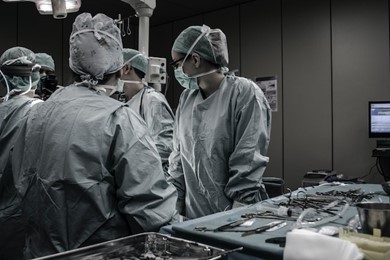Haysan Garcia works as a Surgical Technician in Indianapolis. In the following article, Haysan Garcia discusses the multifaceted responsibilities of surgical technicians, their educational requirements, and the vital contributions they make across diverse surgical specialties.
A surgical technician plays a crucial role in ensuring the seamless execution of surgical procedures, demonstrating precision, dedication, and adaptability across a wide range of medical specialties.
The main responsibility of surgical technicians, also referred to as surgery technicians, is to assist with surgical procedures in an operating room. However, their duties are not limited to any specific procedures, as they can adapt their skills to different processes and protocols unique to each surgical specialty.
Whether the job involves intricate instrumentation for orthopedic procedures or a meticulous setup for neurosurgery, the ability of these technicians to transition between various surgical contexts shows their versatility; making them valuable assets in the medical field.
Haysan Garcia Remarks on These Unseen Heroes
Surgical technicians are employed by healthcare clinics or hospitals to assist in a wide array of surgical procedures. They typically work closely with nurses and other surgical technicians in communicating with patients before and after surgery, ensuring that the patient is comfortable throughout the duration of the procedure.
Duties and Responsibilities
Haysan Garcia notes that before the surgery, a technician will perform the following duties to prepare the patient and the room:
- Set up equipment and instruments needed for the procedure
- Sterilize equipment
- Take inventory to determine if supplies are sufficient for the procedure
- Prepare the patient for surgery
- Count instruments and supplies
During surgery, surgical technicians provide assistance to surgical teams with whatever is needed, including taking specimen samples from the patient to be tested.
Haysan Garcia says that after the patient’s procedures, surgical technicians need to recount the instruments and supplies used.
Education and Training Requirements
Haysan Garcia says that a certificate or associate degree from an accredited program is required to become a surgical technician. The Commission on Accreditation of Allied Health Education Programs (CAAHEP) has accredited about
500 surgical tech and surgical assisting programs in the United States.
Certificate programs take about a year to complete while a degree takes around 2 years. Surgical technician students will study courses such as microbiology, anatomy, physiology, pharmacology, ethics, and medical terminology.
They will also learn about patient care and safety, introduction to surgical equipment, technical or robotic equipment setup, sterilization techniques, controlling infections, and more.
Haysan Garcia explains that students learn in both a classroom setting and in a supervised clinical setting.

 Skill Requirements and Qualifications
Skill Requirements and Qualifications
On top of the required education and training requirements, individuals seeking to become a surgical technician must also possess certain qualities and skills, including:
- The ability to use hands with precision
- Keen attention to detail to maintain sterile operating rooms
- Good listening skills to comprehend and respond to surgical team needs
- Physical endurance, as the job requires standing up for lengthy periods of time
- Ability to work under pressure
- Honest and ethical
Subspecialties
Many surgical technicians are generalists, meaning they work in and across all environments and can offer their skills in various specialties. However, others opt to specialize in specific surgery types such as ones done in orthopedics, neurosurgery, cardiovascular, obstetrics and gynecology (OB/GYN), neurology, urology, reconstructive, and ear/nose/throat (ENT).
Haysan Garcia notes that depending on the specialty, concentrating on one area usually requires additional training, but the technician will be able to broaden their skills and learn techniques such as organ transplantation, surgical robotics, and microsurgery.
Surgical technicians play a vital role in the smooth execution of surgical procedures, tirelessly providing support to the surgical team. On top of that, they are also invaluable when it comes to patient care, safety, and communication.
Although their work is mainly “behind the scenes”, surgical technicians are considered to be heroes in the field of medicine.

 Skill Requirements and Qualifications
Skill Requirements and Qualifications